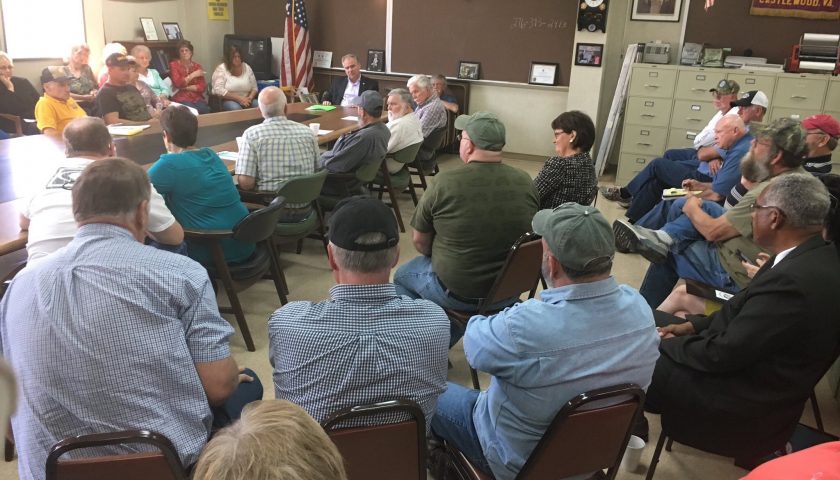Gorsuch: A Great Choice
Former U.S. Supreme Court Justice Joseph Story once noted a persistent problem with his profession:
The danger is not, that the judges will be too firm in resisting public opinion, and in defence of private rights or public liberties; but, that they will be ready to yield themselves to the passions, and politics, and prejudices of the day.*
We have seen too many judges in recent years base decisions on their “passions, and politics, and prejudices.” Fortunately, President Trump’s nominee to the Supreme Court, Judge Neil Gorsuch, understands that a judge’s task is to interpret the Constitution and laws as written, not as he wishes. He will properly approach a judge’s task while upholding the judiciary’s independence.
Judge Gorsuch brings impressive credentials to the table. He has devoted his life to the law. After clerking for two Supreme Court justices, working in private practice, and serving at the U.S. Department of Justice, President George W. Bush nominated him to the U.S. Court of Appeals for the Tenth Circuit in 2006. The Senate, including many senators who are still in office, confirmed him by a voice vote.
While on the bench, Judge Gorsuch demonstrated fidelity to the Constitution as our Founding Fathers wrote it.
Take the issue of “Chevron deference,” based on a prior ruling of the Supreme Court, which gives administrative agencies wide latitude in creating regulations. I believe this doctrine gives the executive branch power that properly belongs to Congress, and have led efforts in the House of Representatives to get rid of it. Judge Gorsuch also understands how Chevron jeopardizes our constitutional framework, writing in the case Gutierrez-Brizuela v. Lynch:
But the fact is Chevron . . . permit[s] executive bureaucracies to swallow huge amounts of core judicial and legislative power and concentrate federal power in a way that seems more than a little difficult to square with the Constitution of the framers’ design.
Judge Gorsuch also recognizes the importance of the civil liberties defined by our Bill of Rights. In one case, federal agents knocked on the door of a man with several “No Trespassing” signs on his property, including his door. The Tenth Circuit found in U.S. v. Carloss that this action did not violate the man’s Fourth Amendment right against unreasonable searches and seizures. Judge Gorsuch dissented, arguing that this ruling would markedly limit the protections offered by that important amendment.
While Judge Gorsuch recognizes the limits of judicial power, he will also defend those rightful powers from the other branches of government. He recently criticized President Trump’s comments slamming certain judges. It is essential to the separation of powers that each branch defend its prerogatives from the others. In the House, I have pushed for Congress to do so, and I believe Judge Gorsuch would do the same for the judiciary from the Supreme Court.
Unlike most presidential appointments, Supreme Court nominations are still subject to the Senate’s modern filibuster/cloture/hold rules, which effectively set the bar for confirmation at 60 votes. I believe that Judge Gorsuch’s qualifications should earn him enough votes to clear that bar. However, I also believe that the modern filibuster/cloture/hold rules encourage dysfunction in the Senate and ought to be abolished. They should certainly be abolished if they prevent the addition of an outstanding jurist like Judge Gorsuch to the highest court in the land.
The modern filibuster/cloture/hold rules permit senators who oppose Judge Gorsuch to put a hold on his nomination and go to a fancy steak dinner rather than explain on the floor why they oppose his appointment. This is unfair to Judge Gorsuch, the majority of their colleagues, and the American people. I take no issue with the historic filibuster, in which a senator can delay a vote by taking the floor for hours to explain his reasons. This is the filibuster depicted in the classic film Mr. Smith Goes to Washington. But a minority should not be able to obstruct the people’s business without even bothering to debate the matters at hand, as the modern filibuster/cloture/hold rules allow.
When accepting the nomination to the Supreme Court at the White House on January 31, Judge Gorsuch noted, “A judge who likes every outcome he reaches is very likely a bad judge, stretching for results he prefers rather than those the law demands.” Similarly, I may not like every decision that Judge Gorsuch makes as a Supreme Court justice. However, I am confident he will strive to reach each decision by faithfully applying the Constitution and the laws.
If you have questions, concerns, or comments, feel free to contact my office. You can call my Abingdon office at 276-525-1405 or my Christiansburg office at 540-381-5671. To reach my office via email, please visit my website at www.morgangriffith.house.gov.
*Joseph Story, Commentaries on the Constitution of the United States




